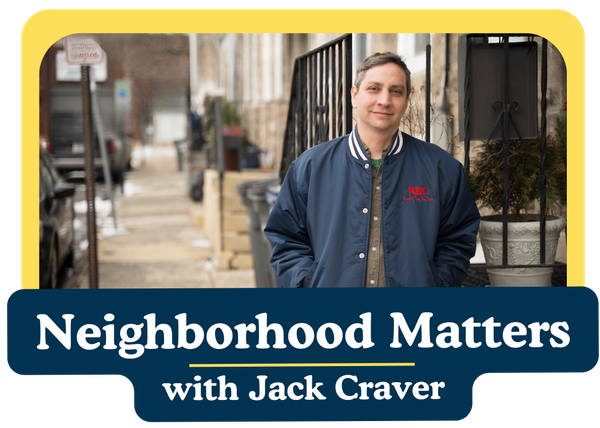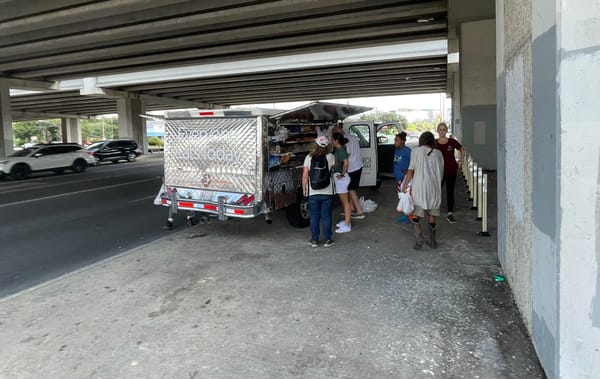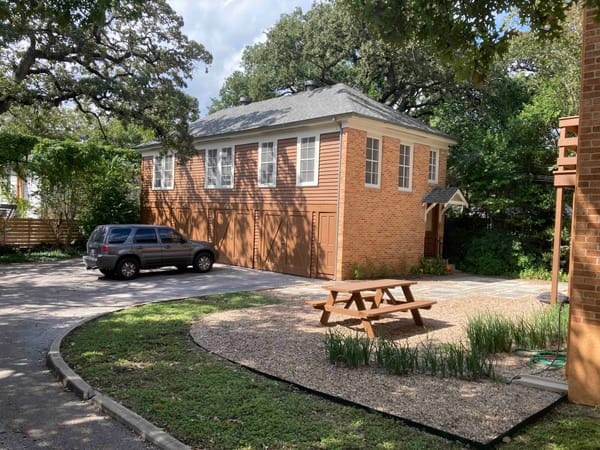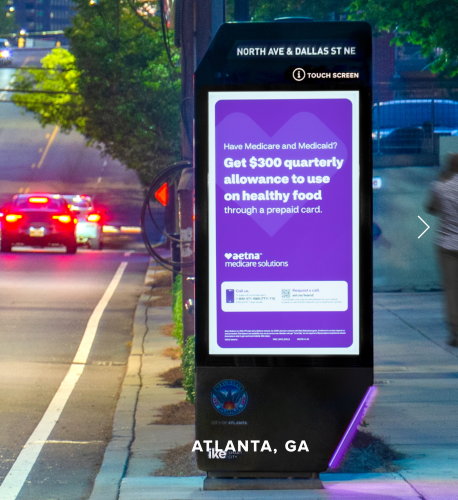The first trip back
And how does Philly compare to Austin?
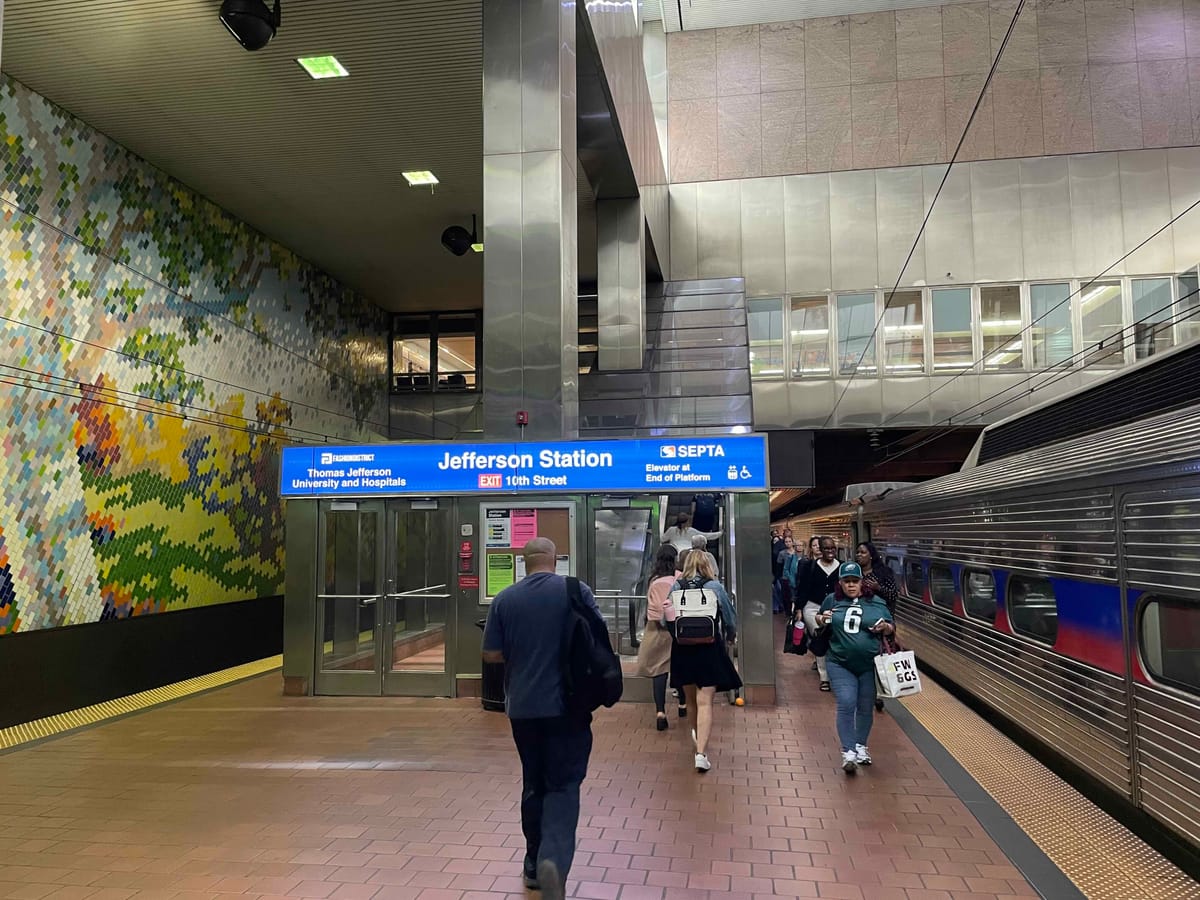
I'm flying into Austin this afternoon for my first reporting trip since moving away in June. Because I want to devote as much time as possible to meeting with sources, I'm probably not going to write anything substantial this week.
But if nothing else I will certainly repeatedly remind you to COME TO THE HAPPY HOUR ON WEDNESDAY AT THE MEAN EYED CAT from 5-7 pm. If you can't make it, however, I will be returning the second week of November to be on the ground for the tax rate election, so I'll try to do something then too.
Where do I live again?
Some people have been asking me to share some thoughts on my new home in the Philly area. I've been hesitant to bring it up because this really is supposed to be a newsletter 100% about Austin, but I do think that I've actually gained some useful perspective on Austin in the three months since moving to Ambler, Pa.
Quick background on Ambler: Ambler is a borough of 6,800 people about four miles northwest of the Philadelphia city limits. It has its own tiny police department, a volunteer fire department and is governed by a Council-manager form of government.
For about 80 years, much of Ambler was employed directly or indirectly by the asbestos industry, a big magnet for both Italian immigrants and African Americans migrating from the South. While the decline of many other industrial towns in the Northeast and Midwest was the result of many factors (automation, offshoring, etc), Ambler's descent was pretty easy to explain: its biggest product got banned in 1973. The 70's and 80's were unkind to Ambler, whose formerly vibrant downtown largely transitioned into vacant storefronts. Residents suffered from extremely high rates of mesothelioma, the deadly cancer caused by asbestos exposure.
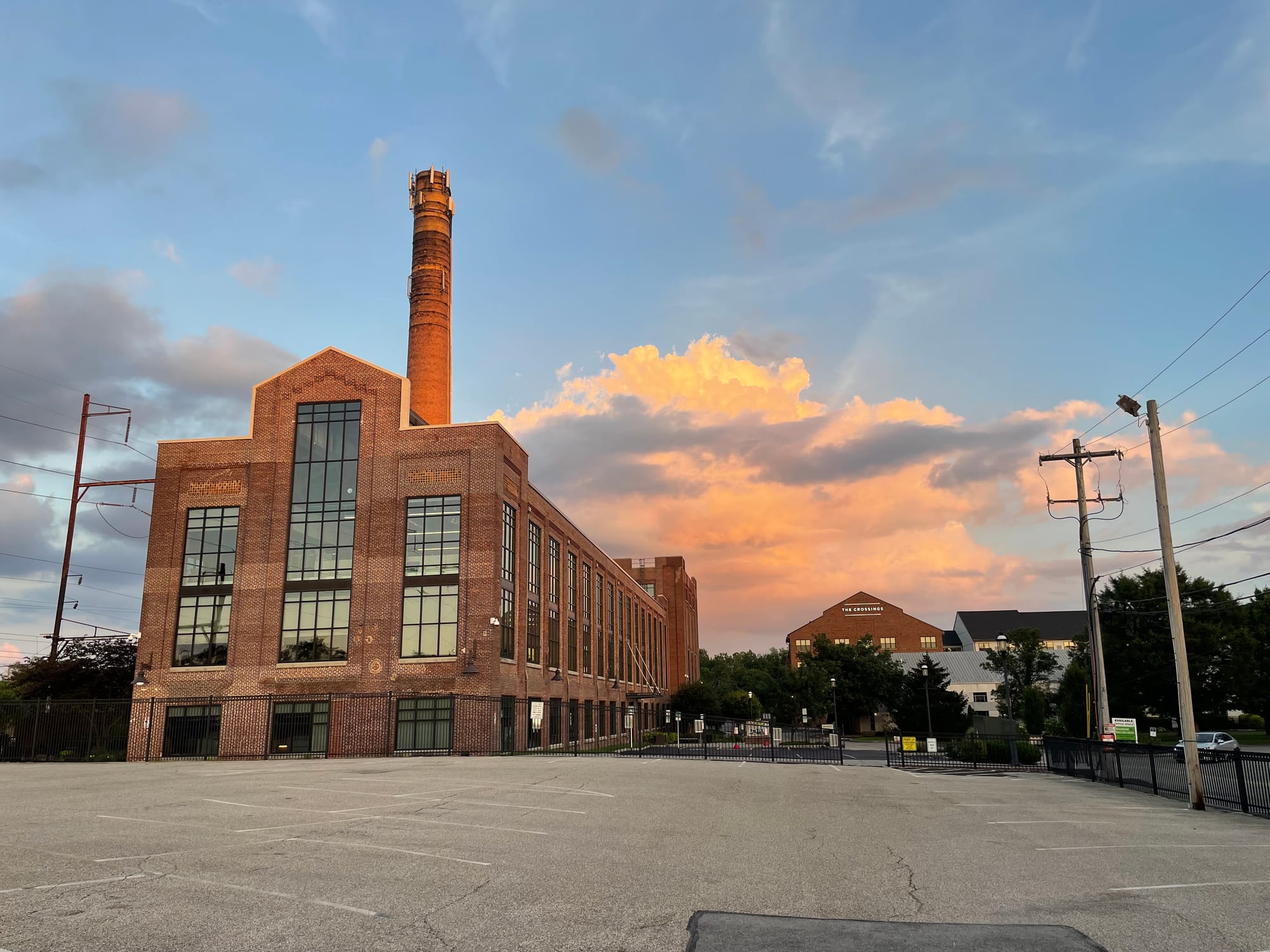
Over the past two decades, however, Ambler has experienced a revival. It now has tons of restaurants, bars, salons, spas, shops. The historic movie theater was renovated and re-opened. I'm not yet in a position to comment confidently on why all this happened (that's for another day), but it did. Now what was once considered an industrial armpit has become an attractive place to hang out or live.
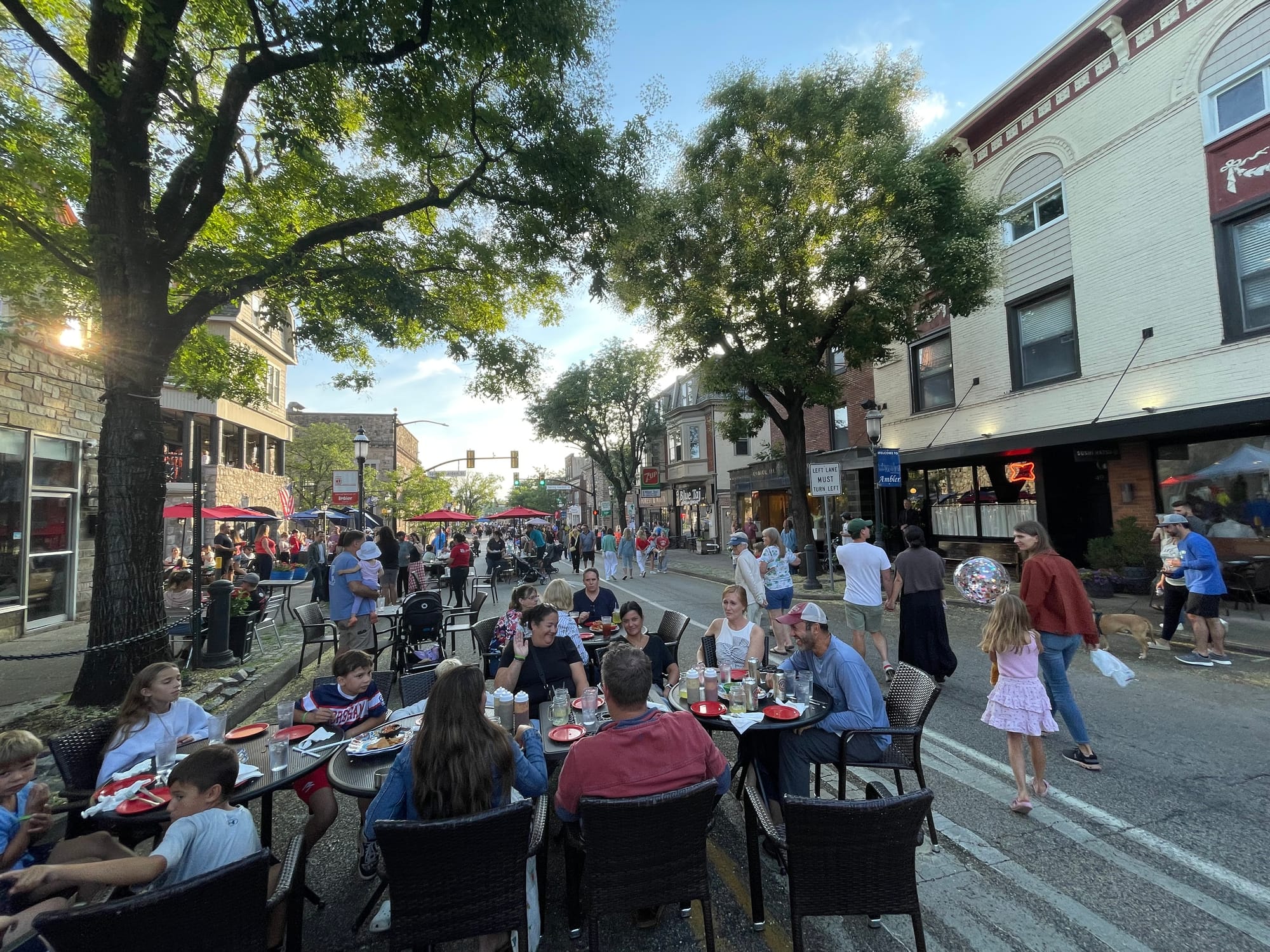
It also has two very valuable public goods: it is part of a highly-ranked regional school district (the other towns in the district are historically more affluent) and it is on one of the regional rail lines into Center City, Philadelphia.
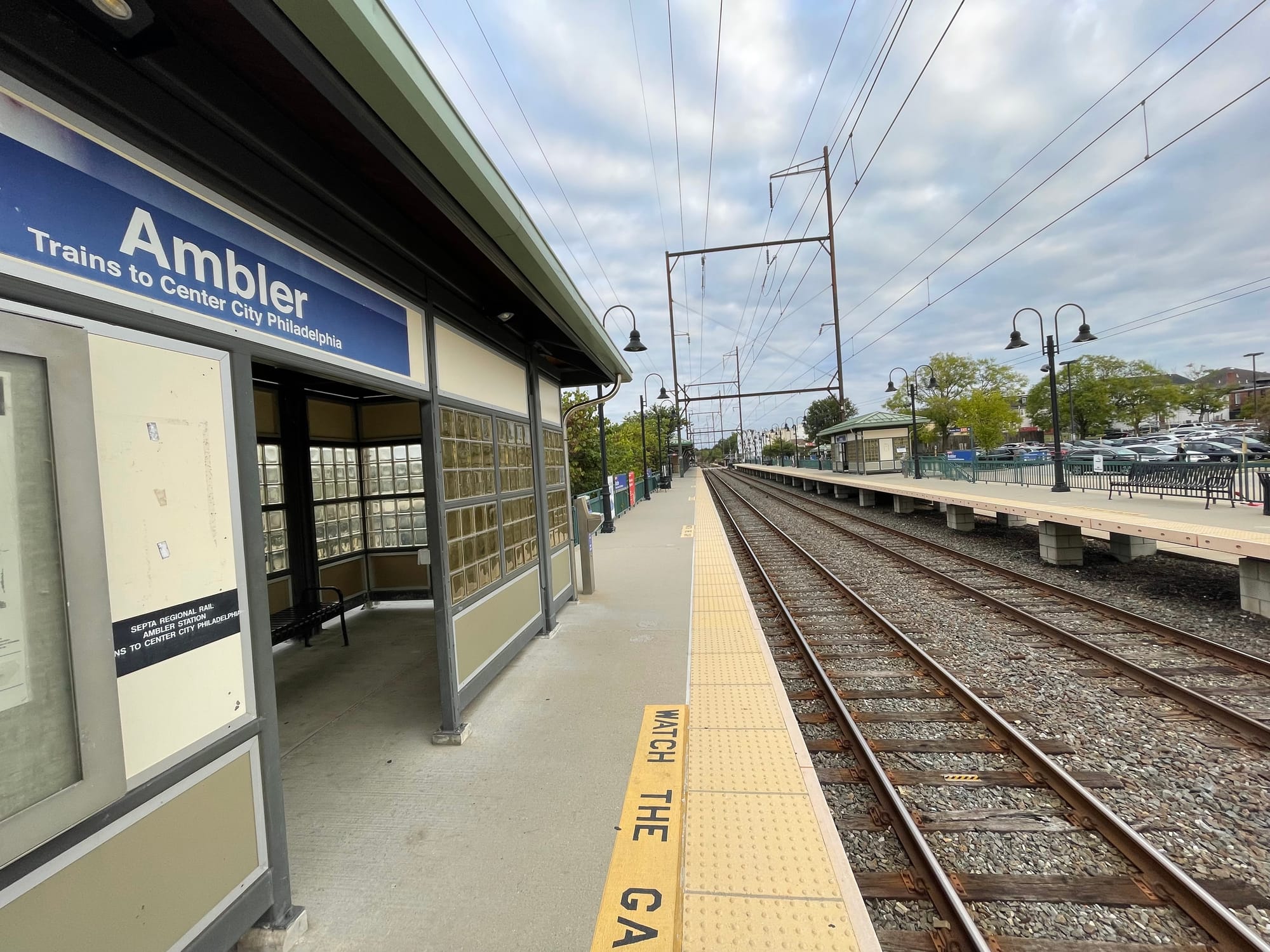
Where's the anti-change resentment? In stark contrast to Austin, I have yet to detect much nostalgia for the good ol' days in Ambler. The consensus appears to be that things used to suck and now they're a lot better.
The obvious difference is that Austin has always been considered cool, while Ambler until recently was in recent memory decidedly uncool.
The question: if Ambler is now cool, will there be nostalgia for today's version of it 20 years from now? Will I eventually encounter people claiming the town has lost its soul, like I constantly do in Austin? Perhaps.
I haven't talked to enough people in other parts of the Philly area to get a sense of how people's feelings on the past and future of their neighborhoods. While Philly has declined in population and the greater region has only grown modestly in recent decades, there are certain neighborhoods and towns that have gentrified. I don't know if people who grew up in Fishtown, for instance, resent the fact that the formerly blue collar neighborhood is now synonymous with trendy young professionals.
Housing: Like Philadelphia and many surrounding towns, Ambler has a far more diverse housing stock than sunbelt cities. At least as of 25 years ago, for instance, only 37% of the housing units were detached single-family homes:

There's a lot of what in Austin would be called "missing middle" housing. Rowhouses are a big thing:
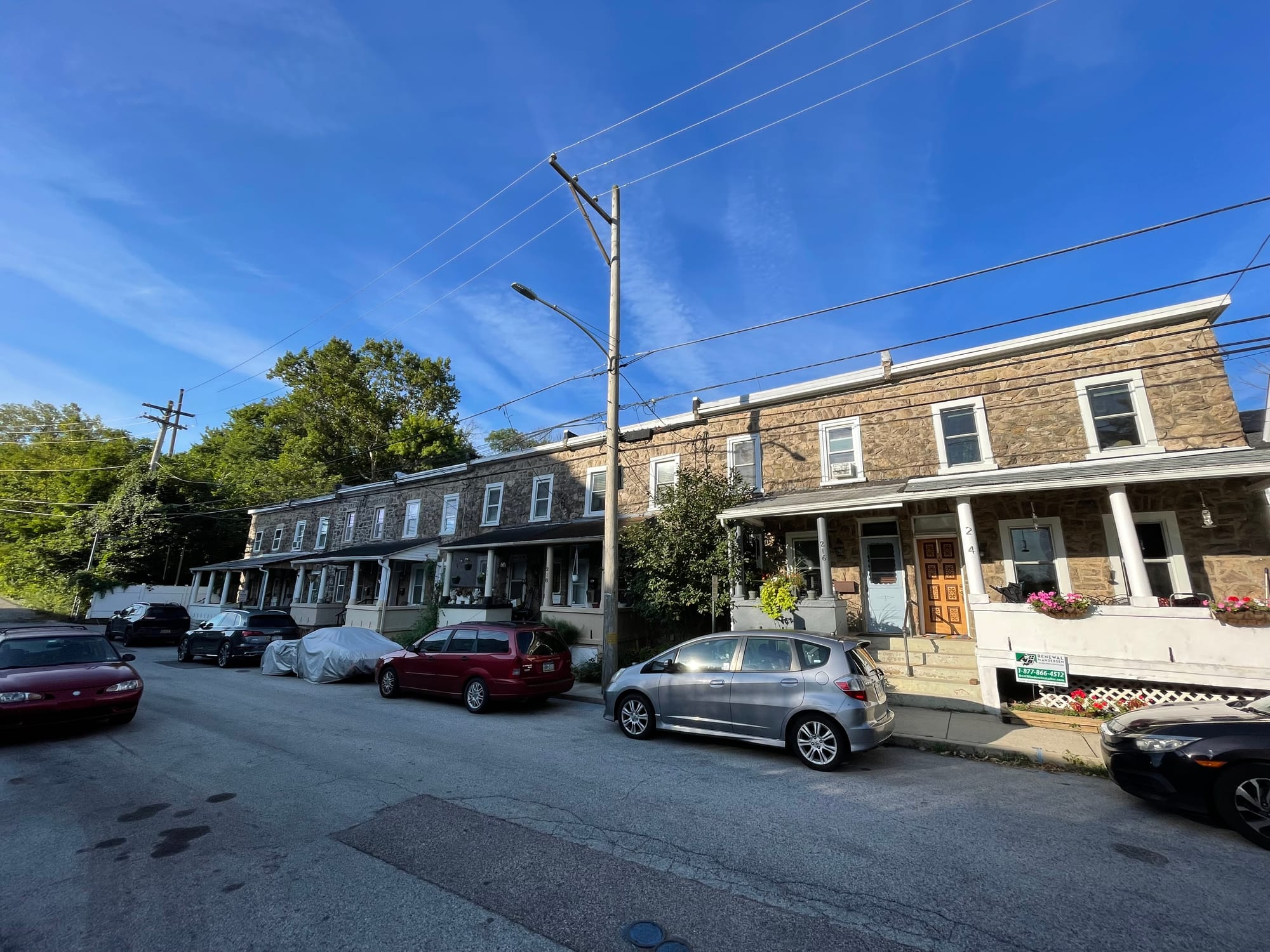
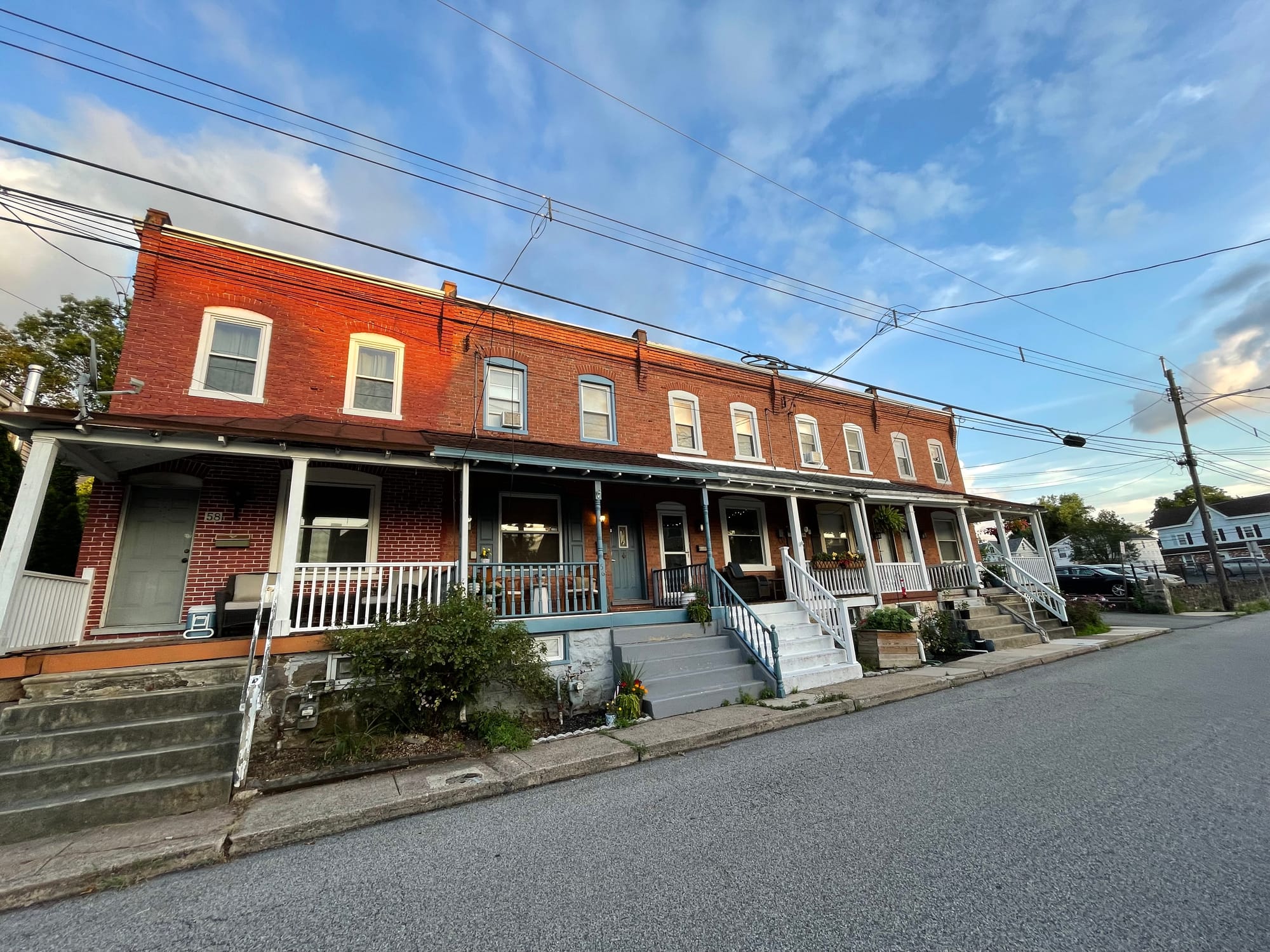
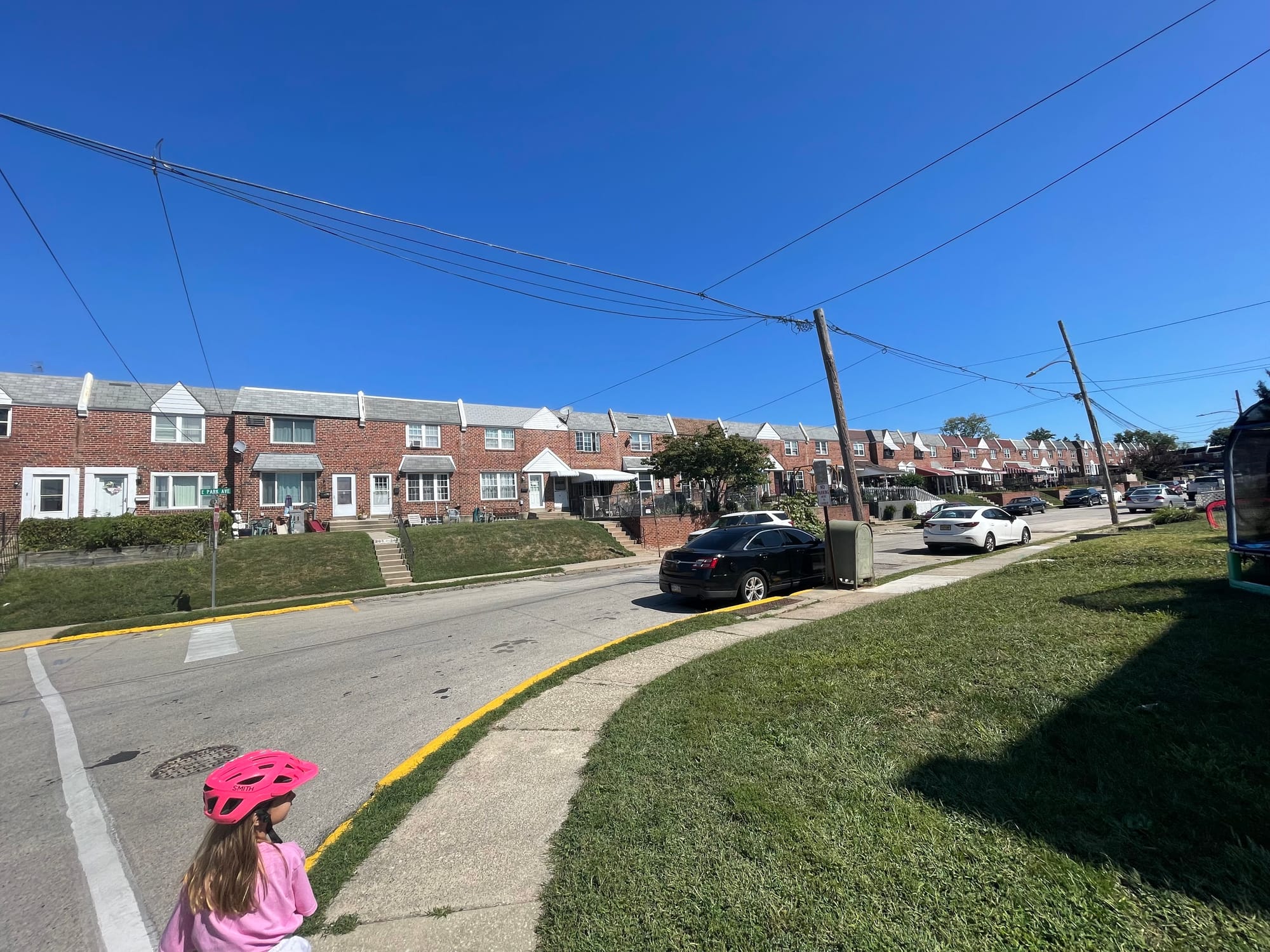
So are duplexes:
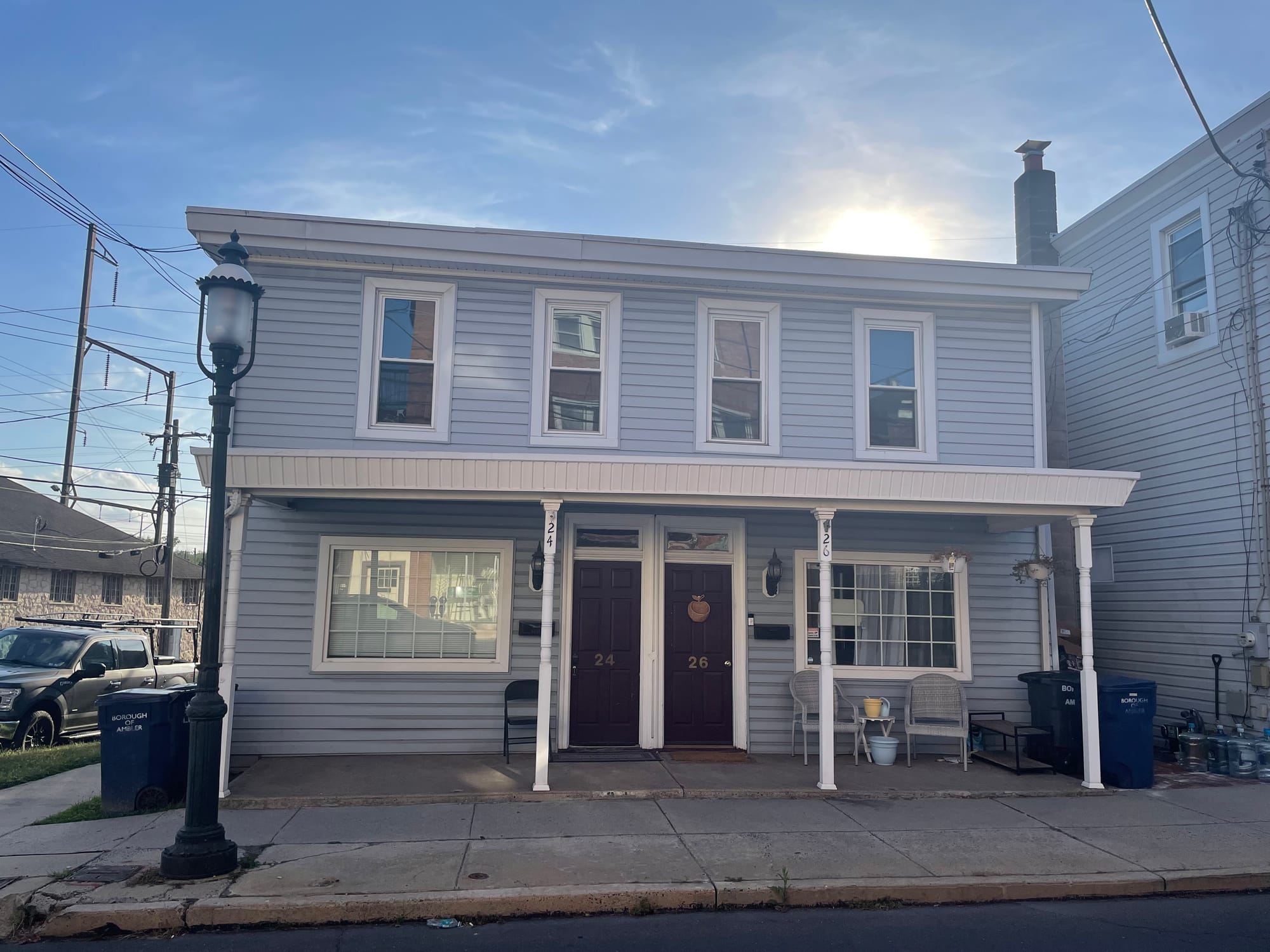
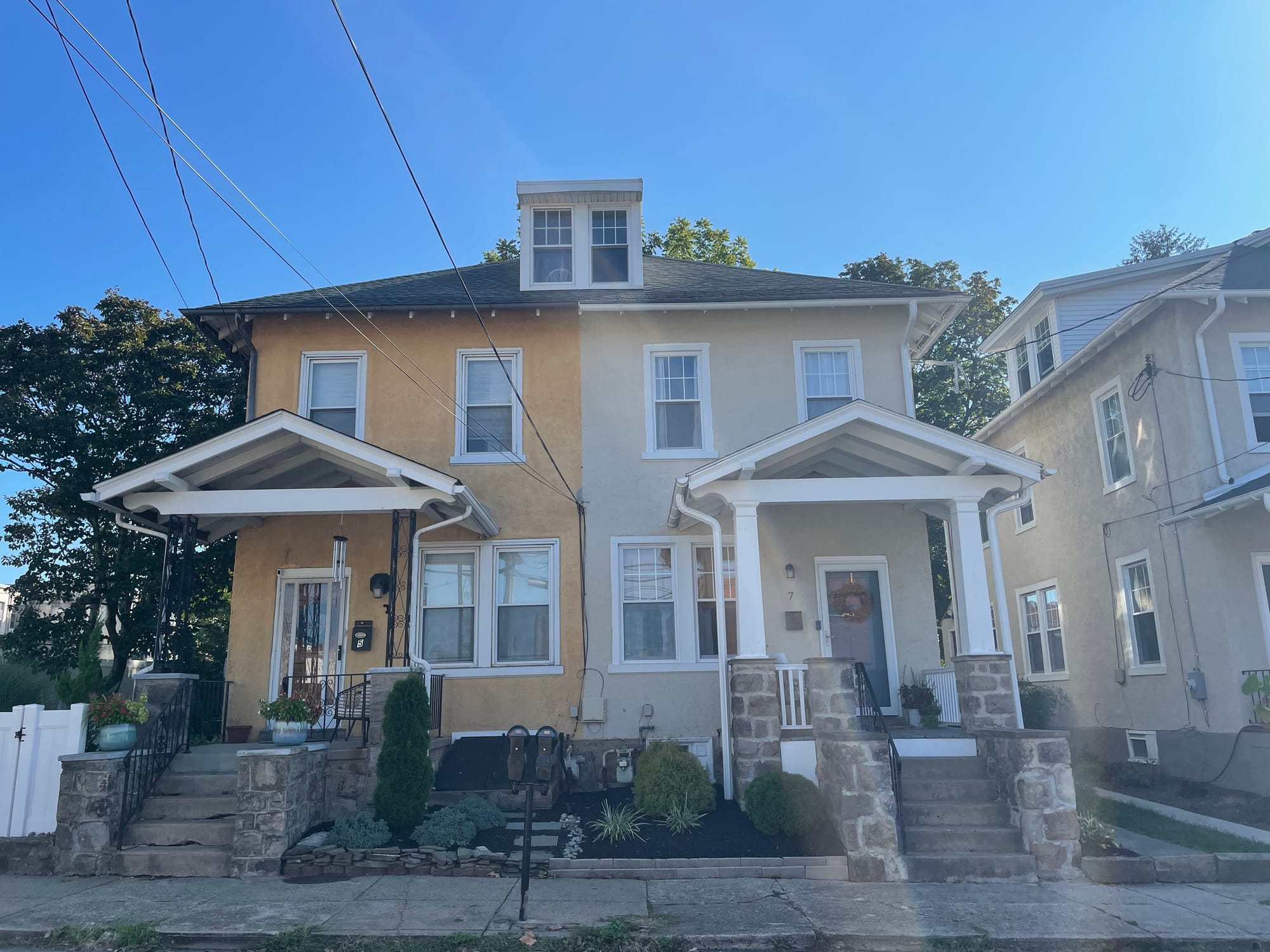
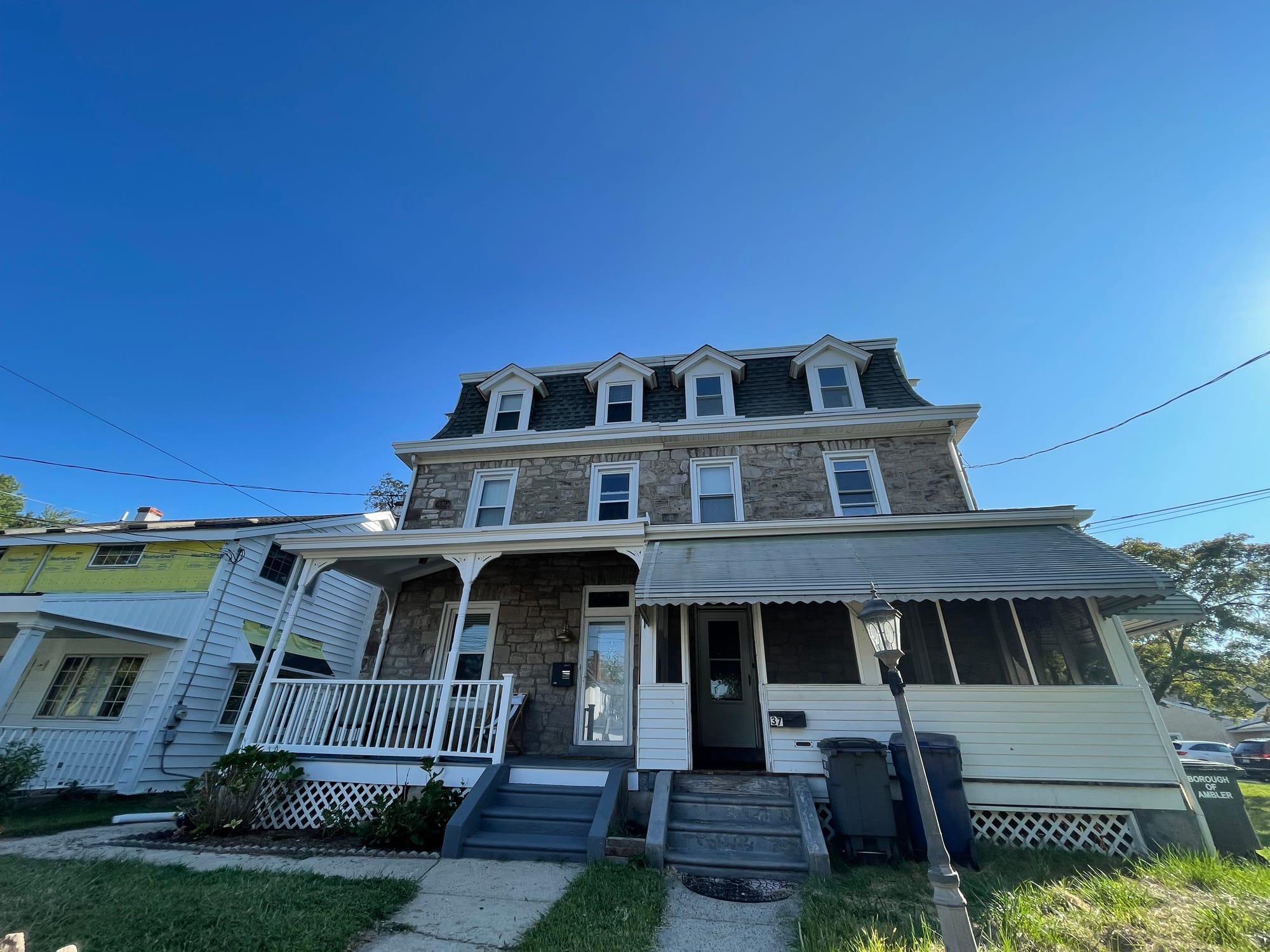
There are also larger apartment buildings that exist in close proximity to single-family homes. Our apartment building, built in 2022, was the first new building in decades, however.
In theory, the tradition of housing diversity should make it easier for the town to embrace more housing to meet growing demand. But I'm not sure if this will actually be the case. The borough is currently updating its comprehensive plan and when I looked at the comments submitted by residents, they sounded a lot like what I heard over the years in Austin. Even in a town that has made walkability central to identity, people are worried about parking. And then there's the skepticism of "unaffordable" new development. My guess is that redeveloping single-family homes into missing middle housing will be far less controversial than it is in Austin but the construction of large multifamily housing may prove just as challenging.
Something I really miss - biking: If I want to go into Philadelphia, the train station I live two minutes from is awesome. How much longer it will be awesome, though, is uncertain because the Republicans who share control of state government seem hellbent on sabotaging it. I wrote a lengthy article about it here.
But if I want to travel more than a mile or two in any other direction, I'm probably driving. The roads to the neighboring suburban communities are not bike-friendly at all. Many of them don't even have sidewalks.
Alright, that's what I got for now. Please come to the happy hour!


